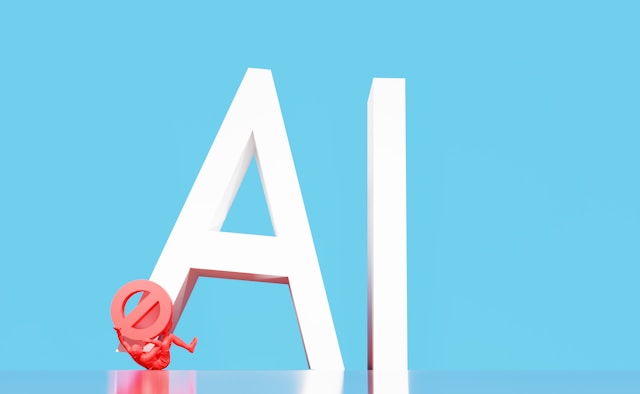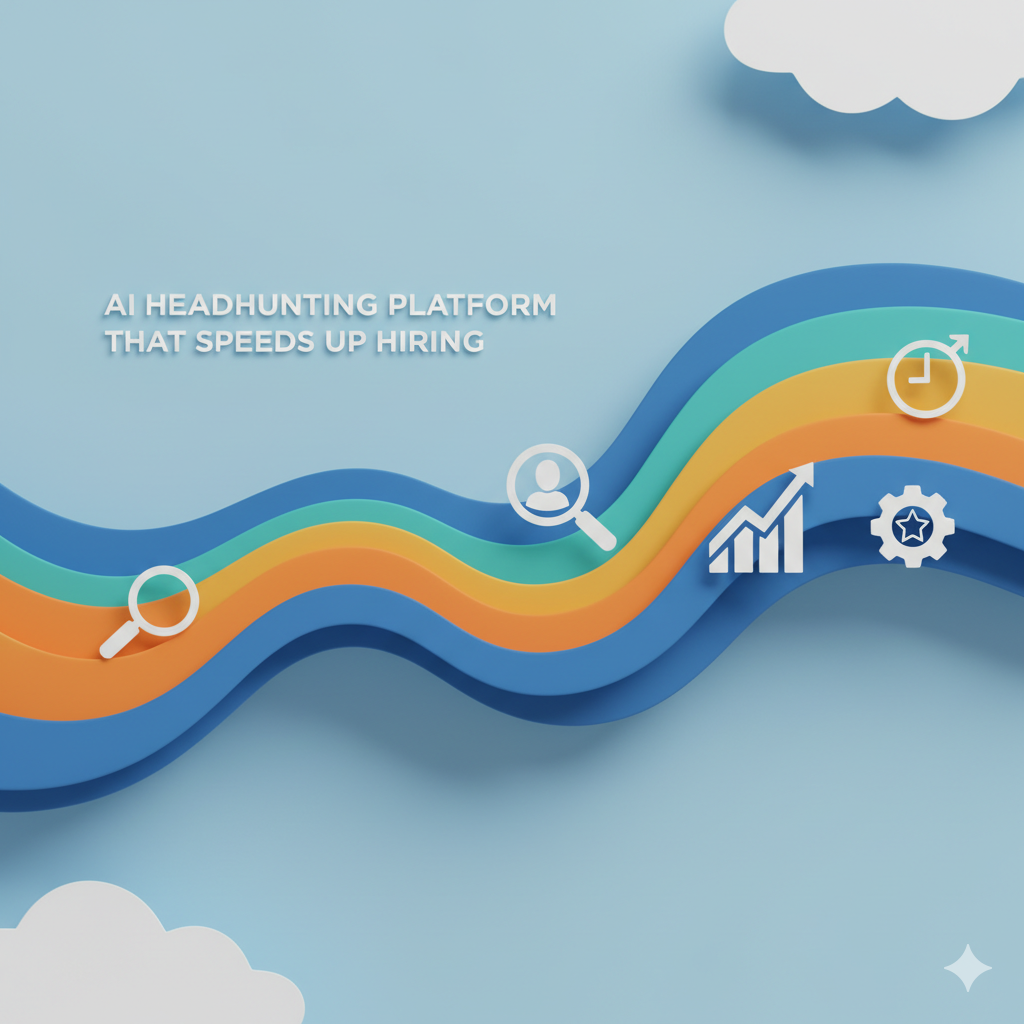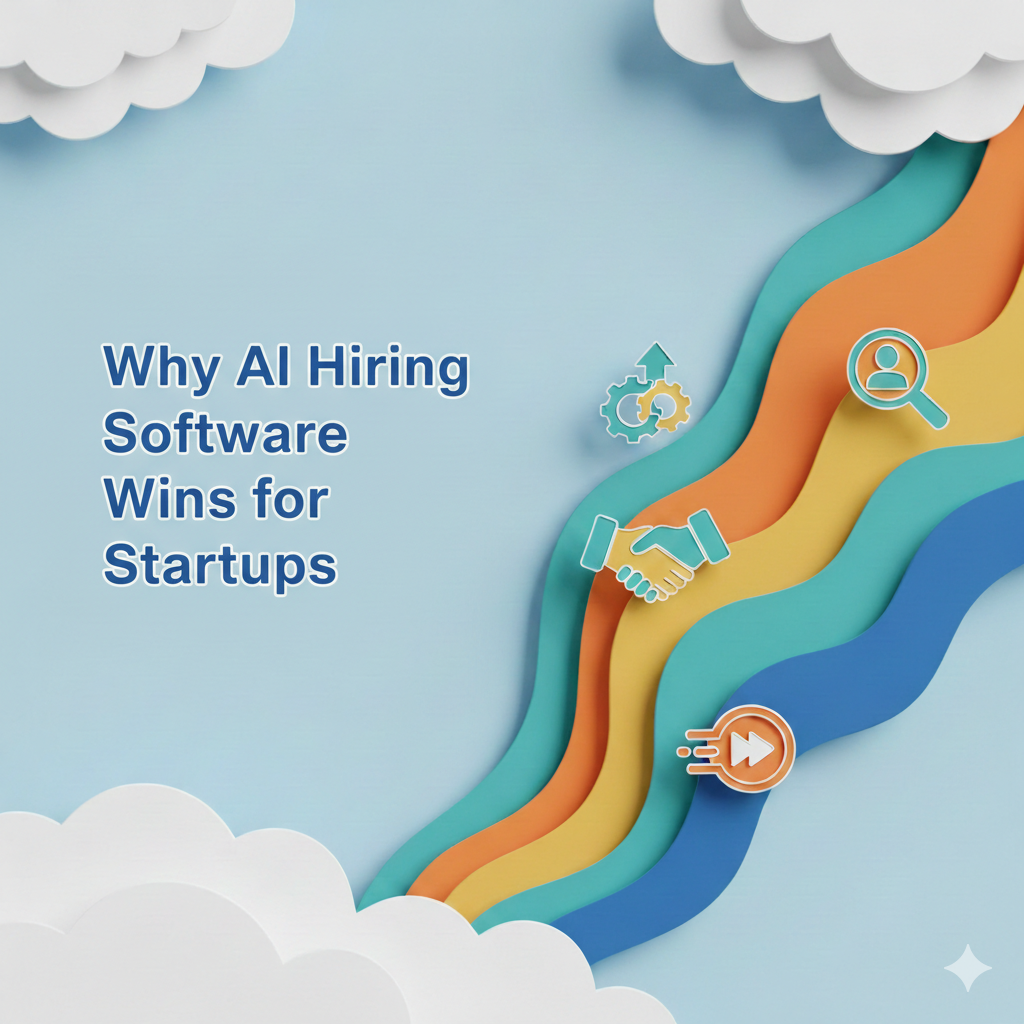AI In Hiring Process: Enhancing Efficiency and Objectivity

Have you ever wished you could spend less time on paperwork and more time connecting with the right candidates?
That’s exactly what AI in hiring makes possible. By automating screening, scoring, scheduling, and candidate communication, AI speeds up recruiting while reducing errors and bias. The result? A faster, fairer, and more engaging hiring process.
With tools like HRMLESS, you can run 24/7 AI interviews, send instant follow-ups, and cut no-shows in half, all while keeping candidates interested. And because these systems integrate with your existing tools, you scale hiring without adding complexity.
In this blog, you will learn:
- What AI in hiring is and how it has evolved
- The biggest benefits are efficiency, bias reduction, and candidate experience
- How platforms like HRMLESS transform hiring with automation and AI
Let’s explore how AI reshapes recruitment into a process that’s faster, smarter, and bias-free.
Understanding AI in Hiring
AI is changing how you find and hire the right people. It helps speed up your process, reduce mistakes, and improve candidate experiences. Knowing what AI means in recruitment, how it has evolved, and how it reshapes hiring can help you make better decisions.
Definition of AI in Recruitment
AI in recruitment uses computer programs to handle tasks like screening resumes, scheduling interviews, and scoring candidates. These tools can analyze data faster than a person and catch details that humans might miss.
For example, AI can scan hundreds of applications quickly, removing unqualified candidates based on your criteria. It can also engage candidates through automated messages, keeping them interested and reducing ghosting. By letting AI do routine work, you focus on interviewing and choosing the best fit. Platforms like ours use conversational AI to run interviews 24/7, making hiring smooth and bias-free.
History and Evolution of AI Hiring Tools
AI tools in hiring started with simple resume scanners that used keywords. Over time, they got smarter with machine learning, able to predict candidate success by analyzing past hires’ data. At first, AI was a luxury for big companies. Now, the technology is widely available.
More than 80% of companies use AI-driven tools to streamline recruiting and improve quality. Recent advances include automated scheduling, candidate engagement via SMS or email, and real-time analytics to track hiring steps. This evolution makes hiring faster and less stressful for teams of any size.
How AI Is Changing Recruitment Practices
AI reshapes your hiring by making it faster and more efficient. It automates repetitive tasks like screening resumes and scheduling, cutting hours off your to-do list. With AI, you can also reduce bias. Automated systems evaluate candidates using data, not feelings, which helps create a fairer process.
AI tools help you engage candidates throughout the hiring process by sending reminders and updates automatically. This keeps top talent interested and lowers no-shows. For example, our tool offers automated pre-screening and scoring, helping you focus only on qualified candidates.
Benefits of AI in the Hiring Process
Using AI in hiring can speed up recruiting, help you find the best candidates, and reduce unfair judgment. These tools work around the clock and handle many tasks you would usually do yourself. They let you focus on making better decisions without wasting time on routine steps.
Improved Efficiency and Speed
AI automates slow hiring processes like screening resumes and scheduling interviews. This means your team spends less time on repetitive work and more time connecting with the right candidates. With AI tools, you can reduce the hiring time by over 60%. For example, our tool uses automated SMS and email engagement to keep candidates going through the process without delay.
Automating scheduling cuts no-shows nearly in half by allowing only engaged candidates to pick interview times. This boosts your hiring pace without adding stress.
Enhanced Candidate Matching
AI scores and filters candidates using data from resumes, interviews, and assessments. This helps you focus only on qualified applicants, saving time and effort.
Your chances of finding the best fit improve because AI examines skills, experience, and cultural fit more consistently than manual review. Our tool uses AI pre-screening interviews that applicants can complete anytime, making it easier to assess more people quickly.
By highlighting top candidates automatically, AI tools ensure you don’t miss hidden talent in large applicant pools.
Reduction of Human Bias
AI reduces bias by using objective data instead of gut feelings or first impressions. This helps create a fair hiring process where candidates are judged for their abilities, not personal traits.
You avoid common pitfalls like unconscious bias related to gender, race, or background. AI-driven tools focus solely on skills and qualifications. This makes diversity and inclusion goals easier to meet while improving the quality of hires.
AI-Powered Tools and Technologies
AI tools make your hiring faster, smarter, and less biased by automating key tasks. They scan resumes quickly, find the best candidates, set up interviews, and keep candidates engaged without extra work from you.
AI Resume Screening
AI resume screening saves you hours by automatically reviewing candidate resumes.
The technology scans for keywords, skills, and experience that match your job description. Instead of reading hundreds of resumes, you get a ranked list of top candidates. This tool reduces human bias by evaluating all resumes with the same criteria.
It also flags important information you might miss, like skills relevant to new trends. Our tool, powered by Nerva AI, includes this feature to pre-screen candidates 24/7. You spend less time on unqualified candidates and focus only on the best-fit applicants. AI resume screening makes your hiring process faster and more efficient.
Automated Candidate Sourcing
Automated candidate sourcing uses AI to search job boards, social media, and databases to find potential applicants. Instead of waiting for resumes to come in, you get a steady flow of qualified candidates. This tool can filter candidates by location, skills, or experience, giving you a refined list. It also updates continuously, so you catch new talent fast.
With software like ours, you can build a pipeline that grows naturally. Automated sourcing helps you avoid slow hiring cycles by keeping your candidate pool fresh without extra manual work.
Intelligent Interview Scheduling
The scheduling of interviews can often cause delays and frustration. Intelligent interview scheduling tools automate this by syncing calendars and offering interview slots to qualified candidates.
Candidates can pick times that work for them anytime, and this system sends reminders and updates to both recruiters and candidates, reducing no-shows by only confirming engaged applicants. By removing back-and-forth emails, you save time and keep the hiring moving forward. Your hiring team can focus on interviews, not coordination, speeding up the entire process.
Chatbots for Candidate Engagement
Chatbots handle candidate questions and keep applicants involved through the hiring journey.
They respond instantly to status updates, FAQs, and application concerns without human delay. These AI-driven chatbots also nudge candidates with interview reminders and follow-ups via SMS or email. That means fewer drop-offs and less ghosting during hiring.
You maintain a smooth communication flow while saving staff time. Chatbots create a positive experience that encourages candidates to stay engaged and responsive throughout.
Implementing AI in Recruitment Workflows
To improve your hiring process, focus on blending AI tools with your existing systems and tailoring those tools to fit your specific business needs. This will make your recruitment faster and more accurate while keeping the candidate experience smooth and fair.
Integrating AI With Applicant Tracking Systems
Your Applicant Tracking System (ATS) is the hub where candidate data lives. AI works best when it connects smoothly with your ATS. This lets you automate tasks like resume screening and interview scheduling without losing track of candidates.
Integration benefits include:
- Automatic candidate scoring: AI ranks applicants based on skills and job fit.
- Real-time updates: Your ATS reflects ongoing AI assessments and interview progress.
- Reduced manual work: Save time on sorting resumes and follow-ups with automation.
Platforms like ours offer ATS integration that keeps your workflow intact. This means no messy data transfers or extra logins. You get a single dashboard to manage sourcing, scoring, and scheduling.
Customizing AI Solutions for Business Needs
Every company hires differently. Your AI should adapt to your unique job requirements and hiring standards, not the other way around.
Key customization options include:
- Job-specific filters: Tailor AI to identify candidates with exact skills or experience levels.
- Bias controls: Set rules that prevent AI from unfairly favoring or excluding groups.
- Communication style: Control how AI contacts candidates—formal, friendly, or direct.
With customization, you keep your brand voice consistent and ensure every candidate interaction feels personalized. Our tool, for example, lets you fine-tune automated messages and interview questions. This flexibility helps you hire better fits faster while maintaining fairness and clarity throughout the process.
Ethical Considerations and Challenges
Using AI in hiring has clear benefits but also raises important questions about fairness, honesty, and privacy. You need to address these issues carefully to ensure that your AI tools work ethically and respect candidates' rights.
Mitigating Algorithmic Bias
AI systems learn from past hiring data, which can contain hidden biases. This means your AI might accidentally favor some groups over others or ignore qualified candidates. To avoid this, regularly check and update the data you use to train AI models. You should also include diverse data sets and review AI decisions with human oversight.
HRMLESS, for example, builds bias reduction into its automated screening and scoring, helping ensure fair treatment for all candidates. Bias audits and testing your AI against different scenarios can reveal unfair patterns. Correcting these early keeps your hiring process balanced and inclusive.
Ensuring Transparency in AI Decisions
Candidates and hiring teams must understand how AI makes decisions. Transparency builds trust and helps you spot mistakes before they cost you. Explain what data AI uses and how it scores candidates. Share clear reasons when applicants are filtered out or moved forward.
Provide an easy way for candidates to ask questions about the process. Transparency also means you keep a record of AI decisions so you can review or challenge them if needed. This openness helps your company follow ethical hiring best practices and avoid legal trouble.
Data Privacy and Compliance
AI in hiring processes must protect candidate information at every step. Collect only data relevant to the job and store it securely. Follow privacy laws like GDPR or CCPA to avoid fines and maintain trust. You must inform candidates about how their data is used and get consent when required.
Automated tools like ours have built-in compliance features to safeguard data and manage permissions automatically. Regularly audit your data handling practices to prevent leaks or misuse. Respecting privacy means candidates feel safer sharing sensitive information with you.
Impact on Recruiters and Candidates
AI changes how recruiters work and how candidates experience hiring. It helps recruiters save time and focus on higher-value tasks. For candidates, it means faster responses and clearer communication throughout the process.
Shifting Roles for Talent Acquisition Teams
Thanks to AI automation, your recruiting team spends less time on repetitive tasks.
Tools handle screening resumes, scoring applicants, and scheduling interviews automatically, freeing you to focus on the personal, strategic side of hiring. AI helps identify top candidates faster by analyzing data from resumes and online profiles.
It also reduces bias by highlighting skills over subjective factors. Platforms like HRMLESS make it easy to manage large applicant pools without extra stress. Recruiters become managers of AI systems instead of manual screeners.
You oversee AI tools, check flagged candidates, and make final decisions.
Candidate Experience in an AI-Driven Process
Candidates no longer wait weeks for updates.
Automated messaging and SMS engagement keep them informed instantly. This keeps candidates interested and reduces ghosting, where applicants disappear without response. AI interviews allow candidates to respond anytime, on their own schedule.
This helps attract a wider pool of applicants who can’t attend fixed-time interviews. Automated scheduling also means fewer no-shows because only engaged candidates book interviews. Clear communication through chatbots and emails improves candidate understanding.
You create a smoother, faster experience that feels responsive and fair.
Measuring the Effectiveness of AI in Hiring
To determine whether AI is helping your hiring process, focus on precise numbers and ongoing improvements. Look closely at data that shows the speed, quality, and fairness of your recruitment. Use that data to adjust and improve your AI tools continuously.
Key Performance Indicators
Track metrics that show how well AI supports your hiring goals. Important KPIs include:
- Time to Hire: Measure how long it takes from application to offer, comparing before and after AI use.
- Screening Accuracy: Check if AI correctly filters candidates matching job requirements.
- Offer Acceptance Rate: Track the percentage of candidates who accept offers after AI-guided screening.
- Candidate Quality: Use feedback or hiring manager ratings to evaluate if AI finds better candidates.
- Ghosting Rates: Lower no-shows and dropouts show better candidate engagement by automated tools.
Use real-time dashboards like our tool offers to monitor these numbers easily. This helps you spot bottlenecks or bias risks fast and keeps your process honest and effective.
Continuous Improvement Strategies
Measuring results is just the start. You must tune your AI regularly to get the best hiring outcomes.
- Collect Feedback: Ask recruiters and candidates how AI affects their experience.
- Test Settings: Adjust AI filters and scoring models to improve accuracy and reduce bias.
- Compare Data Over Time: Look for trends in hiring speed and quality every month or quarter.
- Integrate ATS Data: Combine AI metrics with your Applicant Tracking System to see full workflow effects.
- Update AI Models: Keep your platform, like ours powered by Nerva AI, up-to-date to use the latest tech improvements.
Future Trends in AI-Driven Hiring
AI is set to reshape hiring faster and smarter than ever before. You’ll see full automation of many tasks like pre-screening, scoring, and scheduling. This means you can focus on making decisions while AI handles repetitive work. Platforms like ours use AI to reduce time-to-hire by 62% and cut ghosting by half.
24/7 AI interviews will become more common. Candidates can interview anytime, on their own schedule. This flexibility improves candidate experience and speeds up the process without extra effort from you. Expect deeper integration with ATS and HRIS systems.
AI tools will work seamlessly with your current software, creating smoother workflows. You won’t need to switch platforms or lose data accuracy. New forms of candidate engagement will grow, including AI-powered SMS and email nudges. These keep candidates motivated and reduce no-shows.
Automated reminders and follow-ups help you move candidates through steps faster and with less manual work. Look for more use of voice engagement in AI hiring. Soon, candidates will speak naturally to AI interviewers, adding a human feel without slowing things down. This innovation opens the door to better communication and richer data from interviews.
Here’s what you can expect in AI hiring trends:
Feature
Benefit
Automated Pre-Screening
Saves hours, screens better candidates
Scoring & Filtering
Flags top talent instantly
Integrated Scheduling
Cuts no-shows and simplifies booking
Multi-Channel Engagement
Keeps candidates active and informed
Voice AI Interviews
Adds natural speech for clearer insights
Conclusion
Hiring doesn’t have to be slow, stressful, or biased. With AI in hiring, you can automate routine tasks, cut ghosting, and keep candidates engaged from the start. Instead of juggling paperwork, your team focuses on making meaningful decisions and building stronger teams.
Platforms like HRMLESS combine 24/7 AI interviews, automated scoring, and instant candidate engagement to give you a hiring process that’s both efficient and fair. Whether you’re growing fast or managing a steady flow of roles, automation adapts to your needs and reduces wasted effort.
Book a Demo today and see how HRMLESS can simplify hiring for your business.
Frequently Asked Questions
Are you still curious about how AI in hiring really works day-to-day? We’ve answered some of the most common questions hiring teams ask when deciding whether to incorporate automation into their recruitment process.
Is AI only valid for large companies when hiring?
Not at all. Even small businesses benefit from AI tools that cut down manual work. For example, automated scheduling helps startups fill roles quickly without draining limited HR resources, allowing them to compete with bigger employers for top talent.
How does AI affect employer branding?
AI strengthens your brand by improving candidate experience. Fast replies, clear communication, and 24/7 interviews show applicants that your company values their time. A smooth process leaves candidates more likely to recommend and reapply, boosting your reputation.
Can AI tools adapt to different industries?
Yes, AI isn’t one-size-fits-all. Whether you’re hiring nurses, software engineers, or retail staff, platforms like HRMLESS allow customization. You can set scoring rules, tailor interview questions, and adjust outreach, so the system matches the needs of your industry.
What kind of data does AI track when hiring?
Beyond time-to-hire, AI tracks candidate engagement, drop-off points, sourcing channel success, and quality of hires. For example, you might learn that most drop-offs happen during screening, allowing you to simplify steps and retain more qualified applicants.
Does AI make the hiring process feel less personal?
It depends on how you use it. AI handles repetitive tasks, but human recruiters still add the personal touch. Combined with thoughtful communication, automation frees recruiters to spend more time building genuine connections with top candidates.
Featured
Subscribe to ournewsletter
Related posts
Explore the world of photography with our curated selection of
portfolio websites that showcase creativity and innovation.




